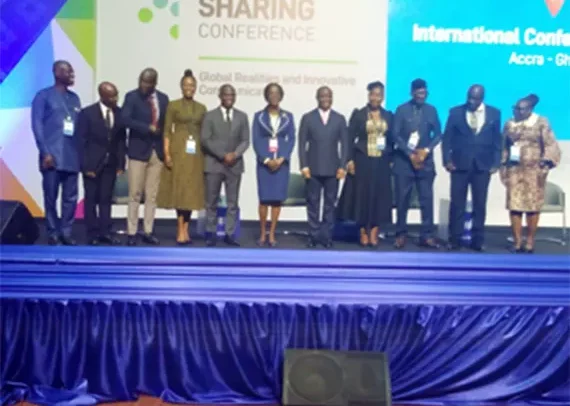Felix Kwakye Ofosu with some members of the IPR Council
The Minister for Government Communications, Felix Kwakye Ofosu, has pledged that during his tenure as minister, he will ensure that the Institute of Public Relations (IPR) Bill is passed into law.
He made this assertion during the PR knowledge-sharing conference in Accra on October 1, 2025.
“Under my leadership as minister, we will ensure that the IPR Bill is passed into law. I can confirm that substantial work has been done regarding the passage of the bill. It is currently with the Attorney General, who is studying it, and will, in due course, make appropriate recommendations for us to move the process forward,” he said.
According to him, bringing together professionals from across the world is a reminder that effective communication is essential and should be rooted in the principles of truth, trust, and professionalism.
“By bringing together professionals from across our continent and beyond, you remind us that communication has two bodies. And that the principles of true communications, has no borders, and that’s the principles of truth, trust, and professionalism are universal,” he stated.
He added that despite the ever changing landscape of our current dispensation, where technology is rewriting the rules, geopolitical shifts are redefining alliances, and environmental and social challenges are demanding new approaches, the world’s reliance on communicators and public relations professionals to navigate uncertainty, build bridges, and drive positive change has remained the same.
“We are living through an extraordinary period of change. Technology is writing the rules of engagement, geopolitical shifts are redefining alliances and priorities, and environmental and social challenges are demanding new approaches to problem-solving. In all of this, one thing remains constant. The world looks to communicators and public relations professionals to help navigate uncertainty, bridge gaps, and inspire collective action,” he stressed.
The Director and Global Head of Trust and Safety for Wikimedia, Jan Eissfeldt, disclosed that, “In the current way we train artificial intelligence foundational models, right, stacked up, middle-aged white dudes, most of the context that’s relevant to Africa is mostly invisible because the data is not accessible on the internet to view.”
“Communications professionals have a vital role in making African contacts and African problems in African solutions, most importantly, actually visible to the training of these foreign models,” he added.
By Vera Owusu Sarpong


